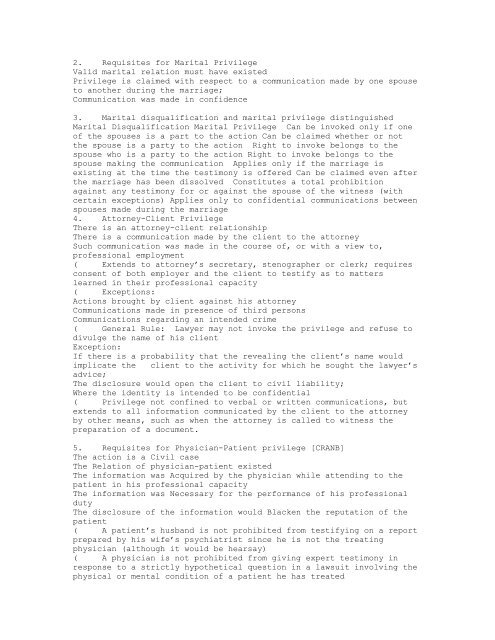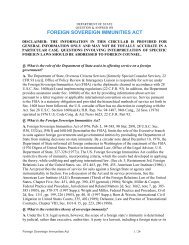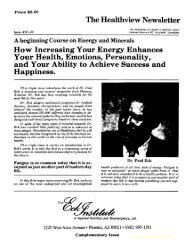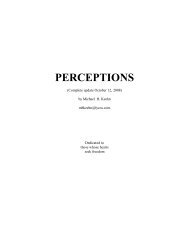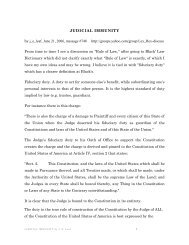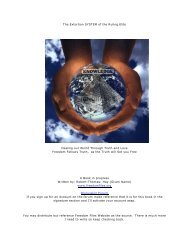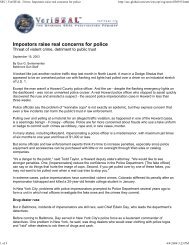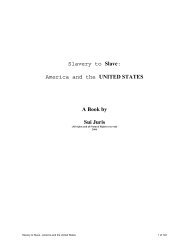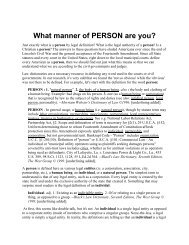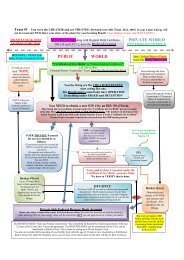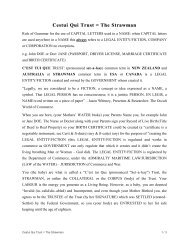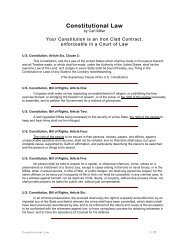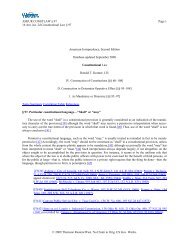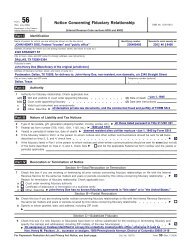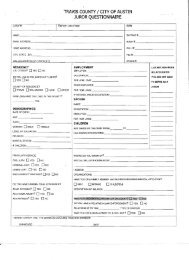EVIDENCE 1. Definitions a. Factum probandum ... - Freedom School
EVIDENCE 1. Definitions a. Factum probandum ... - Freedom School
EVIDENCE 1. Definitions a. Factum probandum ... - Freedom School
You also want an ePaper? Increase the reach of your titles
YUMPU automatically turns print PDFs into web optimized ePapers that Google loves.
2. Requisites for Marital Privilege<br />
Valid marital relation must have existed<br />
Privilege is claimed with respect to a communication made by one spouse<br />
to another during the marriage;<br />
Communication was made in confidence<br />
3. Marital disqualification and marital privilege distinguished<br />
Marital Disqualification Marital Privilege Can be invoked only if one<br />
of the spouses is a part to the action Can be claimed whether or not<br />
the spouse is a party to the action Right to invoke belongs to the<br />
spouse who is a party to the action Right to invoke belongs to the<br />
spouse making the communication Applies only if the marriage is<br />
existing at the time the testimony is offered Can be claimed even after<br />
the marriage has been dissolved Constitutes a total prohibition<br />
against any testimony for or against the spouse of the witness (with<br />
certain exceptions) Applies only to confidential communications between<br />
spouses made during the marriage<br />
4. Attorney-Client Privilege<br />
There is an attorney-client relationship<br />
There is a communication made by the client to the attorney<br />
Such communication was made in the course of, or with a view to,<br />
professional employment<br />
( Extends to attorney’s secretary, stenographer or clerk; requires<br />
consent of both employer and the client to testify as to matters<br />
learned in their professional capacity<br />
( Exceptions:<br />
Actions brought by client against his attorney<br />
Communications made in presence of third persons<br />
Communications regarding an intended crime<br />
( General Rule: Lawyer may not invoke the privilege and refuse to<br />
divulge the name of his client<br />
Exception:<br />
If there is a probability that the revealing the client’s name would<br />
implicate the client to the activity for which he sought the lawyer’s<br />
advice;<br />
The disclosure would open the client to civil liability;<br />
Where the identity is intended to be confidential<br />
( Privilege not confined to verbal or written communications, but<br />
extends to all information communicated by the client to the attorney<br />
by other means, such as when the attorney is called to witness the<br />
preparation of a document.<br />
5. Requisites for Physician-Patient privilege [CRANB]<br />
The action is a Civil case<br />
The Relation of physician-patient existed<br />
The information was Acquired by the physician while attending to the<br />
patient in his professional capacity<br />
The information was Necessary for the performance of his professional<br />
duty<br />
The disclosure of the information would Blacken the reputation of the<br />
patient<br />
( A patient’s husband is not prohibited from testifying on a report<br />
prepared by his wife’s psychiatrist since he is not the treating<br />
physician (although it would be hearsay)<br />
( A physician is not prohibited from giving expert testimony in<br />
response to a strictly hypothetical question in a lawsuit involving the<br />
physical or mental condition of a patient he has treated


